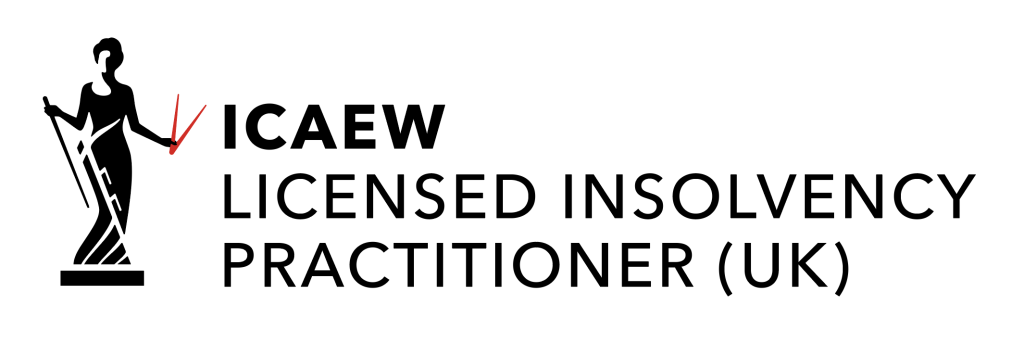Understanding the Role of a Licensed Insolvency Practitioner
Anderson Brookes Insolvency Practitioners help directors close limited companies with debt quickly, legally and with expert guidance every step of the way.
Book a FREE Consultation
What is a Licensed Insolvency Practitioner? Anderson Brookes
If you’re considering closing your company, resolving business debts, or looking for advice during financial difficulty, you’ve likely come across the term “Licensed Insolvency Practitioner”. But what exactly does that mean, and how do you know who to trust?
At Anderson Brookes, our licensed insolvency practitioners (IPs) help directors understand their options, meet legal obligations, and move forward with confidence. This page gives a clear, plain-English introduction to what a Licensed IP does and how that differs from general or unregulated advisers.
What Does an Insolvency Practitioner Actually Do?
Once you’ve made the call and spoken to a licensed insolvency practitioner, what happens next?
Their role is to take a detailed look at your company’s financial position and explain your legal options in plain English. That might involve trying to rescue the business, helping to negotiate with creditors, or, if needed, starting a formal process like a company liquidation.
They’re not just there for the paperwork. A good insolvency practitioner acts as a guide – making sure you know your duties as a director, answering your questions clearly, and handling the formal steps so you’re not left worrying about what to do next.
They’ll deal directly with HMRC, suppliers, landlords, or anyone else your business owes money to. If the company needs to be closed, they’ll manage the liquidation process from start to finish, including notifying creditors, handling employee claims, and dealing with company assets.
In short, they help take the weight off your shoulders and make sure everything is done properly, legally, and with as little stress as possible.

Frequently Asked Questions
Have a company in England or Wales? These are your limited company business debt, liquidation and insolvency questions answered.
Can I liquidate the company myself?
No. Only a Licensed Insolvency Practitioner can place a company into liquidation.
What are the advantages of liquidation?
Placing the company into liquidation will stop debt enforcement, including bailiff action. The directors are usually in control of the process and can choose the liquidator. In most cases, it can be completed within two weeks without needing to attend any formal meetings. Company debts are usually written off unless they are personally guaranteed. Directors who act responsibly can show they handled the company’s financial affairs properly.
Is liquidation the same as dissolving the company?
No. Only a Licensed Insolvency Practitioner can liquidate a company. A director can apply to dissolve a company through Companies House, but only if certain conditions are met. If the company is insolvent, it may be a criminal offence to apply for strike-off. Always take professional advice before doing this. If you think you might qualify for dissolution, call us and we’ll explain the process. See our Licensed vs Unregulated page.
What is compulsory liquidation?
This happens when a creditor applies to court to wind up a company due to non-payment of a debt over £750. If the court agrees, the company is placed into compulsory liquidation. This often leads to more problems for directors, who may find it harder to defend against accusations such as wrongful trading. It is usually better to start the process voluntarily. See Strike Off vs Voluntary Liquidation for more details.
How much will it cost to liquidate my company?
It depends on your situation. In most cases, the directors do not pay the costs personally. The liquidation is paid for using company assets. We are a small practice based in Bolton with low overheads, so we offer some of the most competitive fees in the UK. All costs will be confirmed in writing before we proceed. You may also be interested in CVL Costs.
What is a phoenix company?
This is a new limited company that starts after an old one has gone into liquidation. It allows the business to carry on with the profitable parts of the original company. There are strict rules about reusing a company name, so it’s important to get advice before going ahead. For further detail and more simple explanations of insolvency and liquidation terms see our Glossary.
What is a Members’ Voluntary Liquidation (MVL)?
An MVL is used when a company is still solvent and can repay all its debts. It may be the right option if directors want to retire or step away from the business. MVLs can offer tax benefits, but they must be handled by a Licensed Insolvency Practitioner. See all types of liquidations.
What is wrongful trading?
If a company is insolvent and directors carry on trading, they may be accused of wrongful trading. A director could be held personally liable if they knew, or should have known, that the company couldn’t avoid liquidation and did not act to reduce losses. Acting early helps reduce this risk.
Do you only offer formal insolvency advice?
No. Many businesses contact us who do not need formal insolvency procedures. We help explore all the options, including self-help and informal solutions. If formal action is needed, our Licensed Insolvency Practitioner can act for you directly.
Why Directors Choose Anderson Brookes
With more than 25 years’ experience and thousands of directors helped, we’re trusted by business owners across the UK. You can speak directly with an expert insolvency practitioner and we’ll help you understand your options clearly and quickly. We specialise in working with small and medium businesses and we understand your perspective and priorities.
Ready to
Move On?
If you’re ready to close your company, stop creditor pressure, or just want to understand your next steps, we’re here to talk.
Call us now on 0800 1804 935 or request a call back - we’re here to help.
What Does ‘Licensed Insolvency Practitioner’ Mean?
A Licensed Insolvency Practitioner is a regulated professional authorised to manage formal insolvency procedures under UK law. This includes:
Company liquidations (CVL, MVL, and compulsory liquidation)
Company administration and restructuring options
Individual insolvency support such as IVAs or bankruptcy (in some cases)
Only someone licensed by a recognised UK regulatory body such as the Insolvency Practitioners Association (IPA) or ICAEW can act as an IP. At Anderson Brookes, our IPs are fully licensed and experienced, with decades of combined expertise helping businesses through tough times.
Our Team at Anderson Brookes
Anderson Brookes is led by a team of Licensed Insolvency Practitioners, including Rikki Burton and Jasmine Baxter, who each bring a strong track record in supporting directors across industries. You can speak directly to one of our licensed professionals from day one, with no intermediaries and no sales pressure.
We’ve helped thousands of UK companies close efficiently, resolve complex creditor issues, and start again with peace of mind. Our approach is fast, personal, and focused on giving you clear answers from your first call.
Why Regulation Matters
There’s a big difference between a licensed insolvency practitioner and an unregulated adviser offering debt help or company closure services.
Licensed IPs must meet strict professional, ethical, and legal standards
They are accountable to regulators, subject to inspections, and required to maintain professional insurance
Only licensed IPs can carry out formal insolvency procedures
Unregulated advisers may offer cheaper, less transparent services but cannot legally act as liquidators or handle company debts formally. Using one may delay the process or lead to serious consequences if you’re not properly advised.
Speak to a Licensed IP – Free Initial Review
The first step is a conversation. If you’re unsure whether liquidation is the right move, worried about director responsibilities, or need help making sense of creditor pressure, our licensed IPs are here to help.
Call us on 0800 1804 935 or email advice@andersonbrookes.co.uk for a free, confidential review.
There’s no obligation. Just straight-talking advice, clear answers, and fast action if you decide to proceed.
Our Team
At Anderson Brookes, our experienced and approachable team works closely with company directors across the UK to provide practical, straightforward insolvency advice and support.

Neil Batty
Managing Director

Rikki Burton
Licensed Insolvency Practitioner

Jasmine Baxter
Licensed Insolvency Practitioner

Rebecca Marden
Operations Manager

Mike Halliday
Senior Business Advisor

Ashley Jones
Insolvency Advice Manager
What Can a Licensed Insolvency Practitioner Help With?
Whether your business is solvent or insolvent, a Licensed IP can support:
| Situation | How a Licensed IP Helps |
|---|---|
| You want to close a limited company | Advises on liquidation or strike-off and ensures it’s done correctly |
| You have mounting debts | Provides formal routes such as a CVL or business restructuring |
| You’re unsure what to do | Offers tailored advice on next steps with legal clarity |
| You need to protect yourself as a director | Guides you through your legal duties and minimises personal risk |
In every case, you’ll receive regulated, impartial guidance, not sales talk or guesswork.

